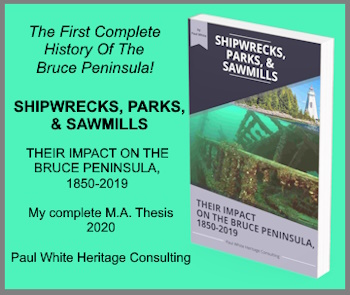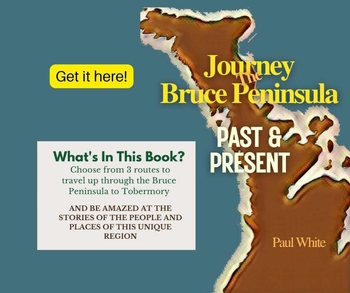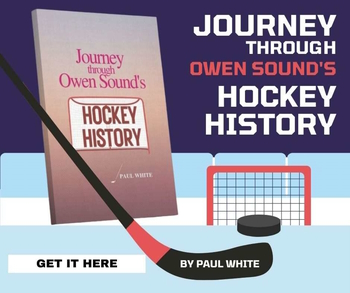Owen Sound Fishing History
Owen Sound fishing history is rich with tales of bountiful commercial catches and competitive fishing derbies with throngs of fishermen in quest of catching the big one.
The last week of the summer of 1999 marked the annual salmon harvest in Owen Sound.
Thousands of anglers came to the Scenic City with rods, reels, and fish finders, ready to compete with each other to see who would catch the biggest fish. Along with the thrill of landing the "big one", the successful fisherman (or woman) could claim the title of the "best angler” for at least the next 12 months.
This quest led to the catching of literally thousands of pounds of fish. Some of' these “trophies" will probably end up stuffed and mounted on walls in dens and recreation rooms across southern Ontario, and beyond. Still others will wind up in freezers, waiting to be cooked. Even more were probably caught, and then released, with the hope that they would be caught the next year when their weight had increased to championship size. But what about the fish that are caught and for some reason they can't be returned to the water or there isn't enough room in the freezer for another fish.
What one does with his "catch" has always been a consideration for fishermen throughout the ages. Some simply enjoy the challenge of catching the big one. Once the fish has been landed it is released back to the water. Others enjoy the taste of the fish as much as they do the quest of catching the fish. When an angler catches too many fish for his appetite or perhaps, he does not even like the taste of fish there are always family, friends, and neighbours willing to supply a ready market for the results of his angling prowess.
Owen Sound Fishing History:
The Early Days
The question of how excess fish are disposed of, reminded me of story related by A.M. Stephens in his memoirs about life in Owen Sound in the 1840s. It seems that one year the fishermen in this area had been overly successful in their catches. After the needs of the community had been met, there was still an over-abundance of fish. Not wanting waste the results of a bountiful harvest, a solution was found.
The fish were cured and packed in half-barrels and Stephens was dispatched with several teams of oxen to sell the fish in communities to the south of Owen Sound. The oxen, sleighs and their drivers made their way easily for the first 12 miles south of Owen Sound. However. from that point until caravan arrived at the Maitland River, the going was tough.
The road was little more than a forest path and man and beast were forced to wade through creeks and swamps and snow. At each community along their route they stopped and sold fish.
As their load reduced, the size of the train shortened, and empty sleighs were sent back to Owen Sound. Stephens, and his entourage, travelled through Fergus, and on to Guelph. From the Royal City, they headed through Eramosa to Erin. By the time they reached Stephens' hometown of Ballinafad, all the fish had been sold and the remaining sleighs headed home.
Stephens decided to spend some time with relatives and friends before returning to Owen Sound. After hearing of his adventures in his new community his former neighbours tried to dissuade him from returning to his home in Owen Sound. They suggested to him that it was too far north, and the community was doomed to failure because nothing could ever grow in such a northern wasteland. History has proved those naysayers wrong, but one thing that could not be ignored, even in the 1840s, the Owen Sound area had plenty fish!
A version of "Owen Sound Fishing History" originally appeared in my Local History column in the September 10, 1999 edition of the Owen Sound Sun Times.





